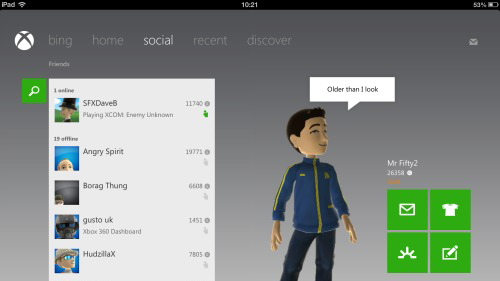Chromecast: Is it third time's a charm for Google and TV?
Sign up for breaking news, reviews, opinion, top tech deals, and more.
You are now subscribed
Your newsletter sign-up was successful
During yesterday's press event Android and Chrome chief Sundar Pichai alluded to a dramatic increase in mobile online video sharing that's caused a massive drop in regular television viewing.
It's not just press conference hype. A report from online video firm Ooyala found that in the beginning of the year, the share of tablet and mobile video grew 19 percent and activity on mobile devices accounted for 10 percent of all online video plays.
Pair our increasing mobile viewing with a simple, familiar interface, and Chromecast looks like the perfect device for the every-day user to pick up, plug in and start using, little learning curve and all.
And everyone else
When it comes to simply streaming content to your TV, Chromecast is unique among competitors in that it doesn't take over your device to stream content to your TV. Unlike Apple Airplay, the Chromecast stick isn't steaming video directly from your mobile device or laptop.
Instead, it's a connected device that acts more like a remote control to tell the onboard, stripped down Chrome OS what to play. So you're free to continue browsing through the web or waste time on Facebook while your video plays.

The same can't be said when just using your mobile devices as a remote control for the Xbox 360 and future Xbox One. The Microsoft SmartGlass app only lets you connect with your Xbox as long as the app is running on forefront of your iPhone or Windows Surface. The use of the app is also extremely limited in just letting you control your Xbox remotely, pulling information on a show you might be watching, or looking up your Halo stats as you play.
It's are a fundamental difference between Chromecast and competitive products, and one that gives the advantage to the former.
Sign up for breaking news, reviews, opinion, top tech deals, and more.
Challenges remain
For all the plusses of this cheap little number, there is one glaring handicap from a technical standpoint.
As Pichai told AllThingsDigital in an interview, Chromecast could run out of on-board memory as it just packs 256 kilobytes.
That's probably not good for any gaming beyond a round of Snake, though future iterations could improve on the memory limitation. Of course, we're likely to see a price jump with that, so the future tradeoffs are already starting to form.
For now Google's strategy looks to be focused on producing a cheap, small device that easily connects the traditional television in your house to the on-the-go entertainment devices that we seem to be clutching nearly every waking moment.
It's in that connection to mobile that Chromecast could succeed where other Google TV attempts haven't. The days are still early, but Google may have struck on TV gold with this one.

Kevin Lee was a former computing reporter at TechRadar. Kevin is now the SEO Updates Editor at IGN based in New York. He handles all of the best of tech buying guides while also dipping his hand in the entertainment and games evergreen content. Kevin has over eight years of experience in the tech and games publications with previous bylines at Polygon, PC World, and more. Outside of work, Kevin is major movie buff of cult and bad films. He also regularly plays flight & space sim and racing games. IRL he's a fan of archery, axe throwing, and board games.